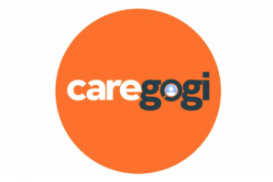Hearing Aids Financial Assistance for Seniors
Hearing aids can be a significant expense, especially medical-grade devices purchased through an audiologist. However, the price tag shouldn’t deter you from seeking professional hearing care if you need it. Hearing aids undoubtedly improve everyday quality of life for those who struggle to hear, and studies have shown that wearing them can even improve brain function for those with hearing loss. Additionally, there are some financial assistance options available for seniors that can make hearing aids more affordable. Below, we explain some of the most common sources of hearing aids financial assistance for seniors.
Veterans Benefits
The Department of Veterans Affairs offers numerous health benefits through the Veterans Health Administration (VHA). One of these benefits is audiology services, including diagnosis and treatment with a professional audiologist. VHA Audiology can prescribe modern hearing aids from some of the top manufacturers including Phonak, Starkey, and Signia. Some people may need to pay a copay for these services, but VHA care is free for those who meet income requirements.
Qualifying for VHA Assistance
Most veterans who served active duty qualify for VHA services and assistance. Veterans must have served for 24 continuous months or the full length of time for which they were called to service. Some exceptions exist, such as for those who were honorably discharged or served prior to September 1, 1980. You can learn more about eligibility for VA health care on the official VA website, and apply online or over the phone.
Medicare
Medicare parts A and B, also known as Original Medicare, is the program that most people automatically qualify for upon turning 65. Unfortunately, Original Medicare does not cover any portion of hearing aids or hearing exams. However, most Medicare Advantage plans, which are purchased separately from Original Medicare through private insurers, offer additional benefits beyond what standard Medicare provides. Some Medicare Advantage plans include hearing care, which can include diagnostic services, working with an audiologist, and/or the cost of hearing aids themselves. If you currently use a hearing aid or need hearing care, be sure to specifically look for a plan with this coverage when choosing a Medicare Advantage plan.
Medicaid
Medicaid may provide some financial assistance for hearing aids, but it depends where you live. Because Medicaid is a joint program between federal and state governments, Medicaid benefits can vary depending on your state. Some services, like hospital care, are required by the federal government to be included in all states’ Medicaid programs. But since hearing care is not one of these required services, the conditions of coverage vary from state to state. Some states cover the cost of hearing aids in addition to diagnostic services, follow-up care, and more; in others, hearing aids and hearing care may not be covered at all. Look into your state’s Medicaid coverage of hearing aids to find out if this assistance is available for you.
National and State Resources for Free/Subsidized Hearing Aids
In addition to the financial assistance options described above, there are national, state, or local resources available to help people access affordable hearing aids. Below, we list some of the national resources for seniors who need help finding free or low-cost hearing aids. To find additional local or state resources in your area, contact your local Area Agency on Aging.
- Help America Hear
- Lions Club Affordable Hearing Aid Project (AHAP)
- Miracle-Ear Foundation
- National Hearing Aid Project
- Starkey Hearing Foundation
If you have any questions about hearing aid financial assistance for seniors, check out the author’s site at Caring or contact us today at Caregogi. We are happy to help!
